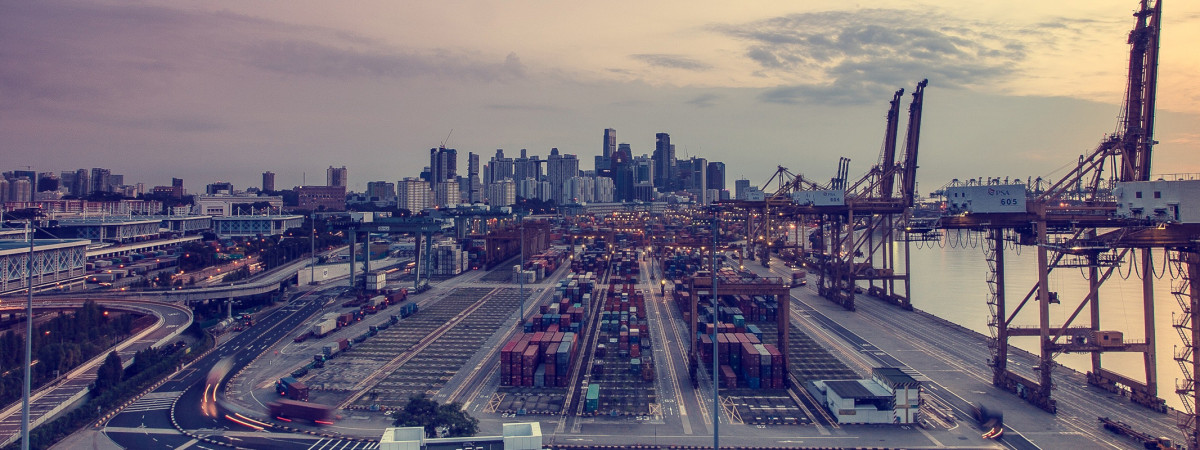
Pixabay
Authors
-
Denielle Harrison
Former Manager, BSR
-
Léa Farnier
Former Manager, BSR
Business, in addition to countries and multinational bodies, has a role to play in combating global climate change. The freight transportation sector represents a significant and growing share of global greenhouse gas (GHG) emissions. And as companies seek to reduce their environmental impact, meet climate goals, and reduce fuel costs, there is increasing demand for sustainable fuel technologies such as renewable natural gas, renewable diesel, electricity, and biodiesel.
Already, leading global companies are piloting and deploying many of these fuels and technologies, including members of BSR’s Future of Fuels initiative and signatories to the Sustainable Fuel Buyers’ Principles. Companies such as UPS and DHL are building their fleets of electric delivery vans in an attempt to meet their corporate sustainability goals, to reduce fuel costs, and to continue service in areas that have banned fossil-fuel-powered vehicles — such as some cities in Europe. Major retailers and consumer goods manufacturers are also making ambitious commitments to reduce the GHG emissions impact of their road freight fleets. For example, Amazon aims to have all of its shipments to customers become net zero carbon, with 50 percent of all shipments net zero by 2030.
In continued partnership with ACT Expo, Future of Fuels will host a Buyer-Supplier Roundtable on April 23 in Long Beach to discuss how companies are evaluating the sustainable fuel market for their commercial freight fleets.
While some progress has been made, many companies encounter significant challenges when assessing sustainable fuels options for their fleets, specifically trying to integrate economic, operational, and sustainability criteria. Fleet and goods owners today are faced with a proliferating set of new sustainable fuel choices, however, they do not have a streamlined, comprehensive framework to evaluate these fuels for their economic, performance, and sustainability attributes. As a result, uptake is lagging the availability of new options.
To help alleviate this need, BSR’s Future of Fuels initiative is currently developing an assessment framework that will outline key financial and performance criteria for at-market and near-market sustainable fuels. Co-developed with Future of Fuels members, this tool will help companies evaluate fuel suitability, financial viability (ROI), and potential barriers to uptake/adoption.
In continued partnership with ACT Expo, Future of Fuels will host a Buyer-Supplier Roundtable on April 23 in Long Beach, California, to discuss how companies are evaluating the sustainable fuel market for their commercial freight fleets. Insights collected during this session will serve as inputs for the development of an assessment framework that the group aims to complete later in 2019.
The Sustainable Fuel Roadmap will complement a series of tools co-developed by Future of Fuels over the past years: a case study library allowing fleet owners to compare clean fuel technologies independently tested and rated by peer companies, the Fuel Sustainability Tool (available for free), the world’s first apples-to-apples way to compare emissions reductions investments in efficiency and advanced fuel technologies, and the Sustainable Fuel Buyers’ Principles, through which companies demonstrate demand for sustainable fuels and catalyze the partnerships needed to drive a sustainable transition in the freight fuel system.
As described in the IPCC Special Report released last fall, we must limit global warming to 1.5°C by 2030 to avoid catastrophic impacts of climate change. Reducing GHG emissions from freight transportation is one effective tactic companies can deploy to mitigate their climate impact. Business looking to address the emissions of their freight transportation are welcome to connect with us, either at our event at ACT Expo or online.
----
We invite fuel purchasers and shippers to sign on to the Sustainable Fuel Buyers' Principles. There is no cost to join; we simply ask that companies offer a sincere commitment to use these principles to proactively engage with their value chains around sustainable, low-emission fuels. View the full list of signatories and the Principles themselves here.
Topics
Let’s talk about how BSR can help you to transform your business and achieve your sustainability goals.



